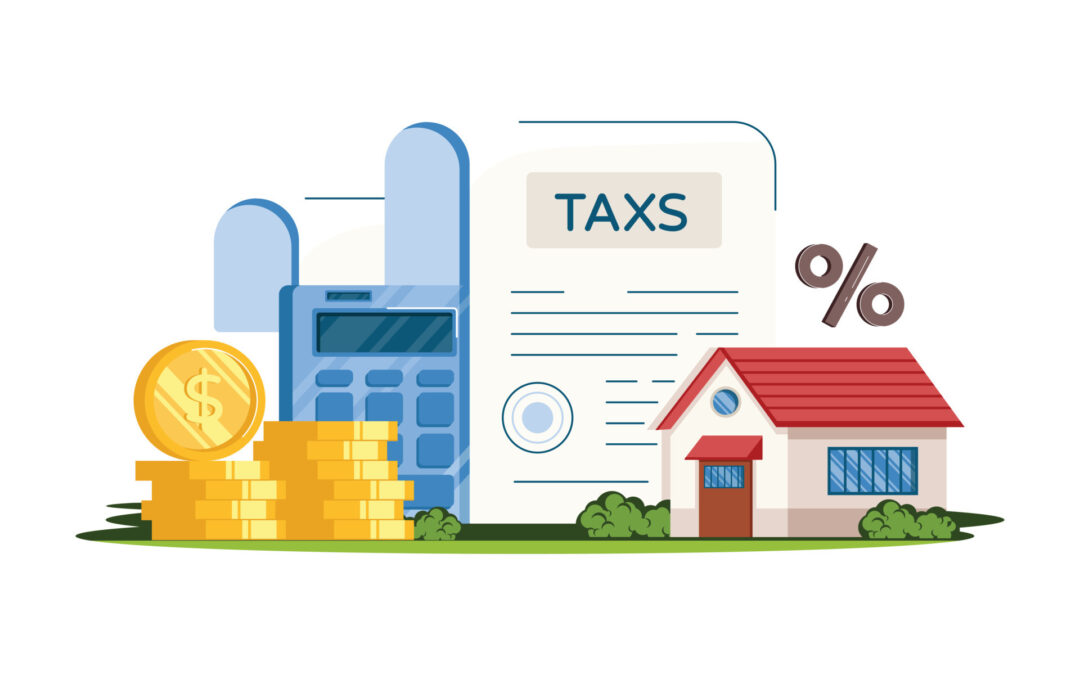What is Property Tax?
State and local property taxes are typically deductible from the property owner’s federal income taxes. Any state, local, or foreign taxes levied for the general public welfare are deductible real estate taxes. They do not include taxes levied on home improvements or services such as trash collection.
Property taxes are assessed annually by state and local governments based on the value of a property. A property owner can deduct some or all of the taxes paid on that property if it is used for personal purposes and the owner itemizes deductions on their federal tax return.
Taxes paid on rental or commercial property and property owned by someone other than the taxpayer cannot be deducted.
A property owner must pay taxes on the property’s value, which are assessed annually by a state or local government. Suppose a property owner uses the property for personal purposes and itemizes deductions on their federal tax return. In that case, they can claim a tax deduction for some or all of the property taxes paid.
When a home sale is closed, a buyer pays the seller’s past-due taxes from an earlier year; however, this payment cannot be written off on the buyer’s tax return. Instead, the delinquent tax payment is treated as part of the home purchase cost.
How to Take Advantage of the Property Tax Deduction
Deduct your property taxes in the year they are paid:
It may appear simple, but it cannot be easy. People typically pay property taxes on the house in one of two ways: When a bill comes in, they write a check once or twice a year, or when they pay their mortgage, they put money aside each month in an escrow account. Be aware of the second method; deduct only the taxes you actually paid during the year.
Locate your tax records:
Your local taxing authority can give you a copy of the tax bill for your home. However, you should also carefully examine the registration paperwork for your car, RV, boat, or other movable assets. You may also be paying property taxes on those, and the portion based on the vehicle’s value is likely deductible.
When you file your return, use Schedule A:
That is where you calculate your deduction. This means you must itemize your taxes rather than take the standard deduction. If you itemize, it will take longer to complete your taxes, but you may have a lower tax bill.
Exclude anything that isn’t relevant:
A property tax can only be deducted if it is assessed uniformly at a similar rate for similar property in the community. The proceeds must benefit the community rather than pay for a special benefit or service for you. Counties may conduct assessments to identify areas for improvement. If they are not a tax, they may not be deductible.
Property Tax Deduction Regulations
If the tax is uniform—that is, if the same rate is applied to all real estate within the tax jurisdiction—you may be able to deduct it from your income. The proceeds must benefit the entire community or the government. The tax cannot be paid in exchange for any special service or privilege available only to you.
To claim the deduction, you must own the property. If you pay your mother’s property taxes on her behalf because she is struggling to make ends meet, the tax is not deductible. You are not personally liable for the tax on her property.
The Benefits and Drawbacks of the Property Tax Deduction
There has been some discussion about eliminating the property tax deduction. One argument is that the deduction and the federal mortgage interest deduction discriminate against renters and encourage people to take on more debt. Property tax deduction supporters argue that it encourages homeownership.
Because the standard deduction doubled in 2018, fewer homeowners are expected to itemize their deductions in 2019. As a result, fewer property owners will take advantage of the property tax deduction.
Every year, the standard deduction is revised. The standard deduction for couples in 2022 was about $25,900, and the deduction for single filers is $12,950.
For 2023, the standard deduction is $13,850 for single filers and $27,700 for married couples filing jointly. Household heads can deduct up to $20,800.


Recent Comments